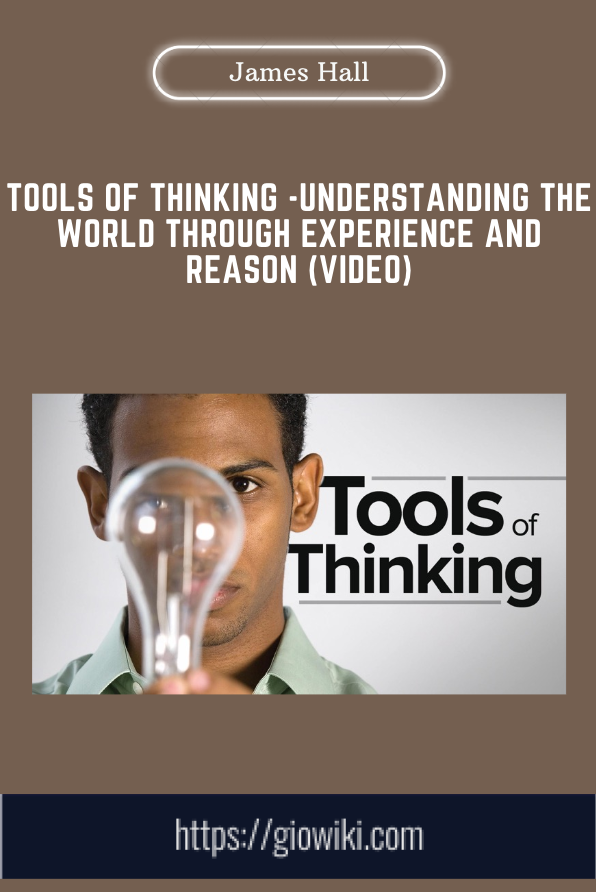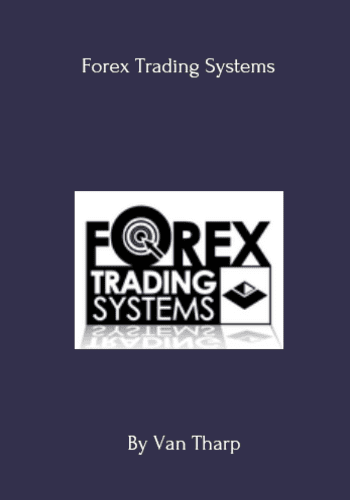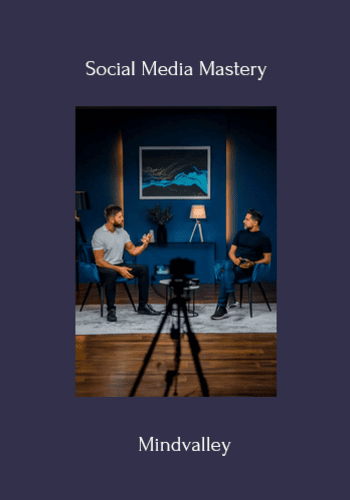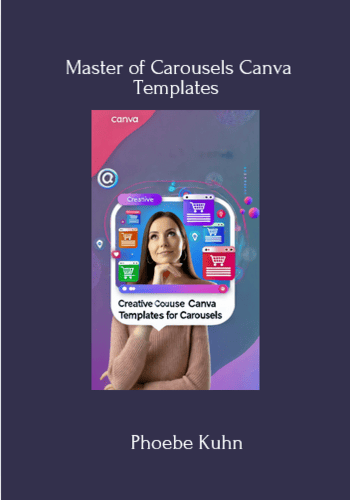Tools of Thinking -Understanding the World Through Experience and Reason (Video) – James Hall, Ph.D
Original price was: $149.00.$39.00Current price is: $39.00.
In Tools of Thinking: Understanding the World through Experience and Reason, Professor Hall turns his friendly but intellectually rigorous approach to the problem of thinking, introducing you to a wide range of effective techniques.
Salepage link: At HERE. Archive: https://archive.is/Dybmx
Course Overview
What is the best way to prove a case, create a rule, solve a problem, justify an idea, invent a hypothesis, or evaluate an argument? In other words, what is the best way to think?
Everyone has to think in order to function in the world, and this course will equip you with the tools to reason effectively in your pursuit of reliable beliefs and useful knowledge. Whether you are a budding philosopher searching for ultimate truths, a science student grappling with the nature of scientific proof, a new parent weighing conflicting child-rearing advice, or a concerned citizen making up your mind about today’s issues, Tools of Thinking will help you cut through deception and faulty reasoning to get closer to the essence of a matter.
In Tools of Thinking: Understanding the World through Experience and Reason, Professor Hall turns his friendly but intellectually rigorous approach to the problem of thinking, introducing you to a wide range of effective techniques.
24 Lectures
Average 30 minutes each
1What Are “Tools of Thinking”?
The “tools of thinking” are the devices and processes we use to achieve knowledge. This lecture introduces eight tools: experience, memory, association, pattern discernment and recognition, reason, invention, experimentation, and intuition.
2Which Tools of Thinking Are Basic?
Professor Hall discusses the eight tools of thinking in detail. Reason, experience, invention, and experimentation are particularly important, since we use them to create our languages and make our instruments of investigation.
3Platonic Intuition, Memory, and Reason
Plato subordinated sense experience to the tools of intuition, memory, and reason, believing that knowledge results from uncovering what the mind already knows intuitively.
4Intuition, Memory, and Reason—Problems
We explore some of the major problems with Plato’s reliance on intuition, memory, and reason. Even though Plato’s position makes good use of several basic tools of thinking, it is still inadequate.
5Sense Experience—A More Modern Take
What we see, taste, smell, feel, hear, and read can be unreliable. That means we must exercise great caution when we use such input as a basis for our thoughts.
6Observation and Immediate Inferences
Aristotle recognized the importance of observation. But his primary concern was with what one can rationally infer. This stimulated his interest in the processes and patterns of reason itself, and led to his systematic mapping of what we call logic.
7Further Immediate Inferences
We continue our investigation of Aristotle’s logic by looking at what more can be inferred from a single categorical proposition. The “square of opposition” is a powerful arrangement for analyzing immediate inferences that can be drawn from the truth or falsity of a single proposition.
8Categorical Syllogisms
A categorical syllogism consists of three categorical propositions: two premises and a conclusion. We learn how to place a categorical syllogism in “standard form” and how to analyze it in terms of “mood” and “figure.”
9Ancient Logic in Modern Dress
Some classes have no members; for example, the class of unicorns. This creates problems because we don’t always know whether a class is populated or not. We look at how developments by logicians George Boole and John Venn help deal with this issue.
10Systematic Doubt and Rational Certainty
We recapitulate some of the reasons for calling sense experience into question, in light of the “systematic doubt” of the 17th-century philosopher René Descartes.
11The Limits of Sense Experience
What content for thought does sense experience, by itself, provide? This lecture probes the views of David Hume, who argued that we have no sensations of causation as such, casting doubt on our ability to use inductive reasoning to gain demonstrable truths about the world.
12Inferences Demand Relevant Evidence
Inferences that rely on irrelevant “evidence” commit non sequitur in one form or another. In this lecture, we explore descriptions and examples of seven forms that such bad reasoning can take.
13Proper Inferences Avoid Equivocation
In relying on experiences as evidence for our inferences, we must avoid making unwarranted presumptions. Otherwise, we may be guilty of fallacies of presumption and ambiguity—eight examples of which are given.
14Induction Is Slippery but Unavoidable
After making a pragmatic assumption about the regularity of nature, we look at John Stuart Mill’s classic analysis of the inductive methods of agreement, difference, residues and concomitant variation. These are illustrated with examples to help clarify what induction can do and what it can’t.
15The Scientific Revolution
Focusing on the methods and ideas of Isaac Newton, we explore three factors that are essential for the generation of a prediction, which is the hallmark of modern science.
16Hypotheses and Experiments—A First Look
Irresponsible hypothesis construction is hard to distinguish from mere speculation. Responsible hypotheses are grounded in testing and experimentation. Hypotheses that are grounded and confirmed in this way generate covering laws.
17How Empirical Is Modern Empiricism?
Direct observations and inferences generated from them are possible at the macro level. However, a different kind of empirical link is required at the micro level where direct observation is impossible. In that case, hypotheses must be constructed and inferences from them need only be confirmed by empirical observation. This opens the door to theoretical imagination, creativity, and conceptual invention.
18Hypotheses and Experiments—A Closer Look
There are at least two uses for experiments that are of interest to modern rational empiricists. Some are aimed at discovering patterns that will help generate descriptive and explanatory knowledge. Others are aimed at testing the theories that we entertain, so as to confirm or disconfirm them.
19“Normal Science” at Mid-Century
In the middle of the 20th century, the vision of “normal science” was rooted in the movement called logical positivism, with contributions by logicians, mathematicians, scientists, and philosophers.
20Modern Logic—Truth Tables
Whether we hypothesize, discover, or create the mathematics, covering laws, and state descriptions that we use in explaining what we observe, we need a reliable apparatus for drawing inferences from them. This is provided by modern logic.
21Modern Logic—Sentential Arguments
We continue our examination of the techniques of modern logic used in complex derivations, with a look at replacement rules, such as DeMorgan’s theorems, and rules of inference, such as modus ponens.
22Modern Logic—Predicate Arguments
In contrast to sentential logic, which treats simple sentences as unanalyzed units, predicate logic involves the analysis of the internal structure of subject/predicate sentences. We look at the tools that allow us to solve predicate arguments far beyond the scope of Aristotelian syllogistic.
23Postmodern and New-Age Problems
Modern rational empiricism is not problem-free. For instance, we know that observations themselves are theory laden. Further, if the general culture determines what those ideas and theories are, then even our simplest descriptions are culturally relative. These are central themes of postmodernism.
24Rational Empiricism in the 21st Century
The tools of thinking are available to all. There are useful places to put them to use if we will spend the efforts to master them. The systematic study of logic, science, mathematics, history, and even philosophy, are all good places to start.
Get Tools of Thinking -Understanding the World Through Experience and Reason (Video) – James Hall, Ph.D, Only Price $39
Tag: Tools of Thinking -Understanding the World Through Experience and Reason (Video) – James Hall, Ph.D Download, Tools of Thinking -Understanding the World Through Experience and Reason (Video) – James Hall, Ph.D review, Tools of Thinking -Understanding the World Through Experience and Reason (Video) – James Hall, Ph.DDiscount, understanding the world through experience, how do you understand how the world works, how to understand the world around you, understanding our world, experience of the inner worlds pdf.
Here's an overview of the prominent keywords and a list of famous authors:
Business and Sales: Explore business strategies, sales skills, entrepreneurship, and brand-building from authors like Joe Wicks, Jillian Michaels, and Tony Horton.
Sports and Fitness: Enhance athleticism, improve health and fitness with guidance from experts like Shaun T, Kayla Itsines, and Yoga with Adriene.
Personal Development: Develop communication skills, time management, creative thinking, and enhance self-awareness from authors like Gretchen Rubin, Simon Sinek, and Marie Kondo.
Technology and Coding: Learn about artificial intelligence, data analytics, programming, and blockchain technology from thought leaders like Neil deGrasse Tyson, Amy Cuddy, and Malcolm Gladwell.
Lifestyle and Wellness: Discover courses on holistic health, yoga, and healthy living from authors like Elizabeth Gilbert, Bill Nye, and Tracy Anderson.
Art and Creativity: Explore the world of art, creativity, and painting with guidance from renowned artists like Bob Ross and others.
All the courses on WSOlib are led by top authors and experts in their respective fields. Rest assured that the knowledge and skills you acquire are reliable and highly applicable.
Specification: Tools of Thinking -Understanding the World Through Experience and Reason (Video) – James Hall, Ph.D
|
User Reviews
Only logged in customers who have purchased this product may leave a review.

Original price was: $149.00.$39.00Current price is: $39.00.












There are no reviews yet.